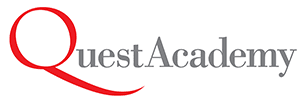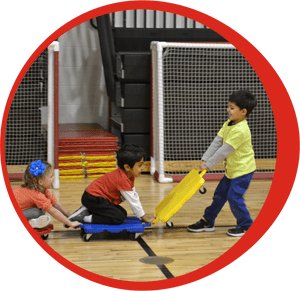Our approach to childhood, learning, and teaching is based on decades of work by researchers and teachers in both gifted education and early childhood education.
Community and Collaboration
- Family is at the center of children’s learning. Children’s first and forever teachers are their families. Therefore, we develop strong teacher-parent/caregiver connections.
- Children learn best in a community that they actively and intentionally co-create. For example, our classroom rules (agreements, really) are made by the children.
- Learning happens through relationships. Collaborative efforts are necessary for cognitive development. Children imagine, create, explore, and solve problems together, every day. Dialogue, negotiation, critique, debate, and discussion are central to learning, so they’re a big part of the work and play we do in the preschool class.
Each child is a unique, fully formed human being
- Every child is inherently worthy of respect. Their feelings are real. Their ideas are valuable. Children learn to respect us and each other by experiencing our respect for them.
- Each child’s unique potential belongs inexorably to them. We facilitate the child’s own development, not like a sculptor forms clay, but more as a gardener nurtures a flower.
- Children show their learning in myriad ways, storytelling, drawing, explaining, dancing, sculpting, building, writing, painting and more.
Curriculum – we pursue wonder
We know that children learn as a consequence of their own actions. They learn best when they’re genuinely curious about something. “Academic” skills are best learned when embedded in play and work that children find intrinsically interesting. Therefore, most of the curriculum in the preschool class emerges directly from the children’s fascinations.
Short explorations can run their course from spark to completion in anywhere from a few minutes to a few days. The flexibility within our reliable daily routine allows students and teachers to creatively follow a child’s lead.
One day, a student sang a spontaneous song. “Did you like it?” she asked. I smiled, “It sounded like a happy song and it was very quiet.” “It would be louder with a microphone,” she said. I replied, “I think I know where to find materials to make one, let’s go.” And we did.
Projects can last from a few weeks to a few months. Students use and extend their math, literacy, problem-solving, and other skills in the process of investigating, exploring, and creating a topic that fascinates them. Some past projects include the Airplane Project, the Candy Project, and the Salon Project.
Teachers as Wonderers
- Teachers frequently wonder out loud, provoke and stimulate thinking, to encourage children to see learning as a life-long, enjoyable endeavor.
- We constantly observe and listen in order to understand children’s learning, interests, and expressions.
- We regularly guide research, and co-construct knowledge with children, to honor their curiosity and encourage them to follow through.
- We reflect on our own teaching and learning in order to constantly improve the art and science of our teaching,
- We listen to and speak to each child as an individual and as a member of a community, to model our understanding of humanity,
- We think creatively, innovatively (and sometimes quickly!), to capitalize on students’ spontaneous sparks of curiosity,
- We resist the temptation to jump in with answers. The process of discovery is vital, so we act as guides, connecting students with resources for them to engage with directly.
We think our program is pretty cool and unique. Our learning environments are beautiful, stimulating and reflective of children’s learning.

